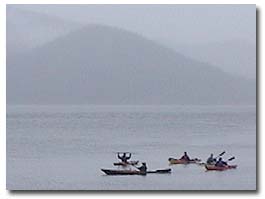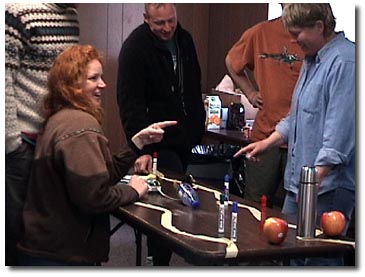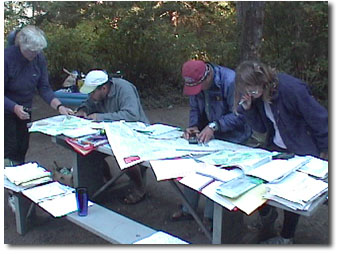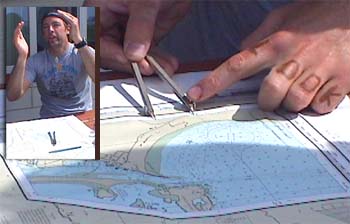Instructor Training, Development and Certification
American Canoe Association (ACA) Instructor Development and Certification Workshops (IDW, ICE) - Coastal Kayaking Certification - Whitewater Kayak Certification |

|
||||||||||||
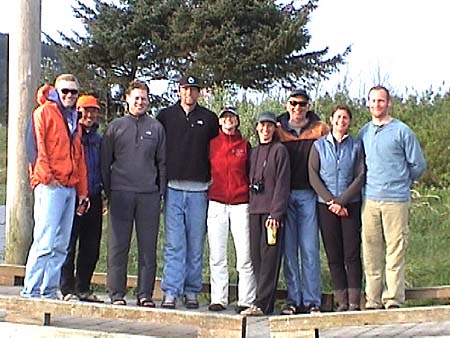
Candidate Group, La Push |
Cost - Please inquire as it varies by location
A certain level of proficiency is required before entering the course. A level three assessment is a good barometer of what we look for.
*Note - It is important to know basic strokes and rescues before attending - if you are planning an in-house employee instructor course, consider a one-day staff training prior to the workshop.
Dates:
See some movie clips from previous courses
History: Andree brought the first American Canoe Association's instructor development training to Washington state in 1993 when she wanted to become a certified instructor. Since that time she has become an instructor trainer and has run clinics in Washington, Florida, New York, Mexico and Hong Kong. This course is applicable whether you are interested in teaching professionally or in improving yourself so you feel more comfortable introducing your friends to the sport. Through teaching topics throughout the course, and becoming involved in several feedback processes, you will find this three day intensive course to be satisfying! Expect to use every minute of these days!.
Main points:
- Course models what we hope you will give to your students in terms of progression, feedback, stroke technique, content
- Both the development workshop and exam are strategically placed in an area with shelter from the elements and close proximity to flat and rough water.
- All candidates in an ACA IDW and ICE are given topics to teach. This
is for several reasons:
- Create a lesson plan on paper with one for every other student
- Practice using the experiential teaching techniques we give you on the first day
- Opportunity to see several other teaching styles
- Gain new content in areas such as introduction to kayaking, safety, navigation and wind, weather and waves.
- The course is designed for the give and take of good feedback. Self, peer, video and instructor feedback are all utilized.
- We spend valuable time giving you good feedback during a personal interview. We consider this to be the cap on the program as we want to be sure you know what you need to do to be successful!
|
Preparing to be video taped during an instructor certification exam. It was a misty day off of Washington Park in Anacortes. There are several levels of certification based on your ability to model strokes, use great teaching styles, depth of knowledge of the sport, and comfort on various kinds of water. We will be video taping and carefully reviewing each of your strokes.
|
Brian brought his hand made baidarka from his home on the Oregon coast. He demonstrated a roll using a paddle float.
Our courses are run as beginner courses are run - with respect for all levels. While you do have to meet a certain criteria to enter the course, we give you a progression from flat water to rough water and an option to watch our open water scenario session on the final afternoon. We want everyone to leave feeling they accomplished something but not feeling overwhelmed. Just as in a novices class - we want to keep you in a flow state and not over-challenged, because if you move out of that zone you will stop learning. (See 1, and 2) |
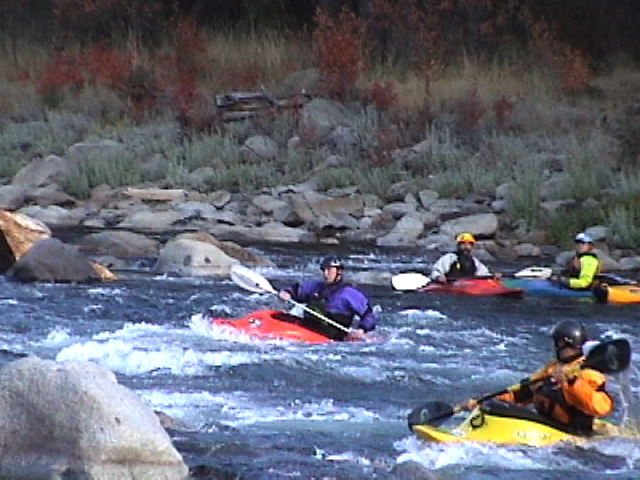
One of our Spokane candidates leading a ferrying clinic. |
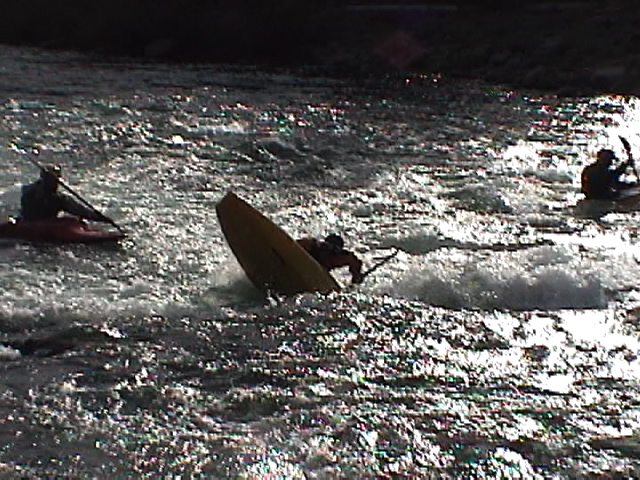
Warming up, taking a "play" break. |
|
Table-top presentation: rules of the road and paddling in traffic. |
Navigation
|
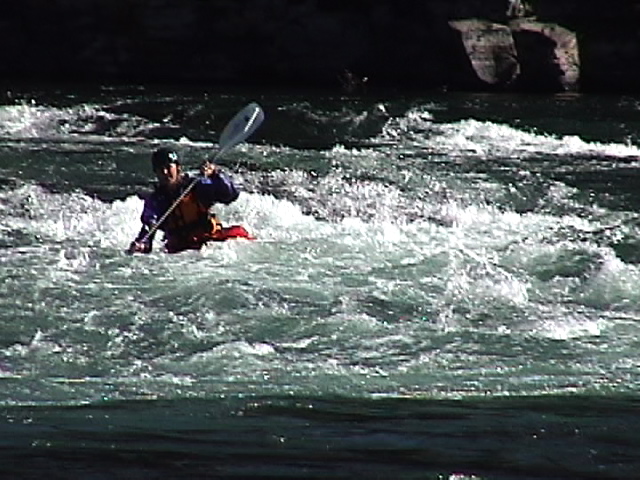
|
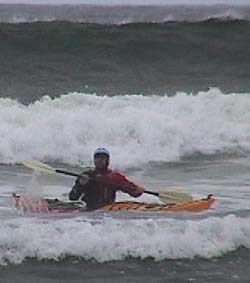
Coming in from surfing at La Push, WA |

After gaining Coast Guard approval, one of our candidates led a hands-on signaling session. |
Assistants are often canditates who have successfully become open water instructors. Assisting a course can give you credits towards instructor updates and, in some cases, be considered as an "IT assist".
Read what others have said about this class.
More:
You will be expected to prepare for and teach two to three topics. We encourage you to utilize alternative teaching techniques such as small group work, describe-demonstrate-do, whole-part-whole, visualization and games. These methods embrace different learning styles such as thinkers, doers, watchers and feelers - your job is to teach to them all as efficiently as possible, keeping in mind a method that is appropriate.
Lastly we will practice rescues. Each of us needs to perform rescues quickly and efficiently, and be able to teach our students the same without confusing them with too many varying techniques.

Practing T-rescues off the China coast. View the movie! |

Following up with a warm meal at a beachside cafe. |
We also recommend everyone watch Performance Sea Kayaking both with an eye toward technique and also as picturing yourself as the trainer in the video. Many of the instructors in the video are ACA instructor trainers utilizing the ACA methodology.
PREPARING FOR THE INSTRUCTOR DEVELOPMENT WORKSHOP:
Read the posted outline carefully. Note that you will be expected to prepare for and teach two to three topics. Choose topics you feel comfortable with and make a lesson plan for each. The lesson plan should include your goal, objective, outline of subject matter, and the method you plan on using. Make a zeroxed copy of your plan for the rest of the class.
Try to stay away from lecturing. Suggestions include small group work, describe-demonstrate-do, whole-part-whole, visualization, games. These may sound foreign to you.....we will cover them in our first morning and develop them through out the course. Remember, you are teaching to thinkers, doers, watchers and feelers and you want to teach to them all as efficiently as possible, keeping in mind a method that is appropriate.
Which method takes the least time? Lecturing. Which method hits just one learning style? Lecturing. Which method provides the highest retention? Experiential......be creative!
Another major focus of the class is the modeling of your strokes. We will be video taping and reviewing each stroke of yours carefully. Watch the Performance Video tape and visualize yourself modeling for a public audience.
Lastly we will practice rescues. Each of us needs to perform rescues quickly and efficiently, and be able to teach our students the same without confusing them with too many varying techniques.
